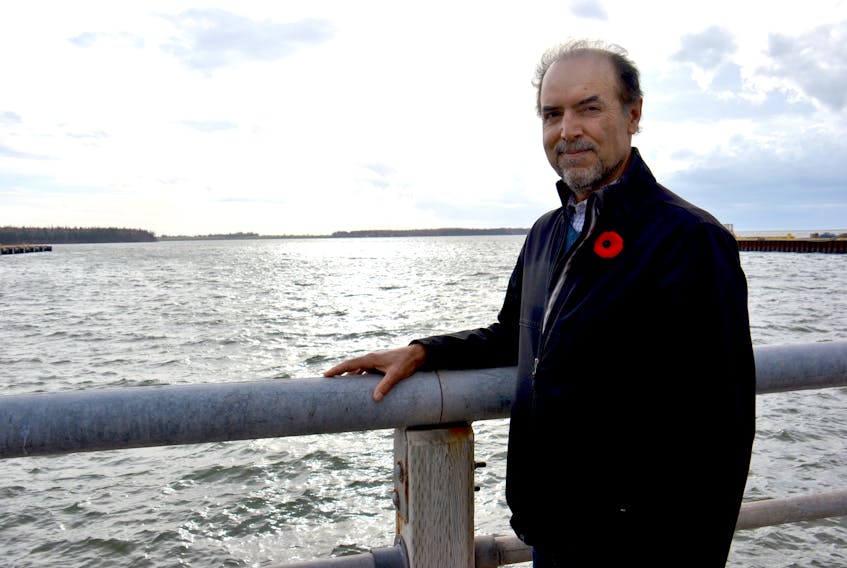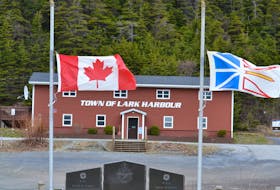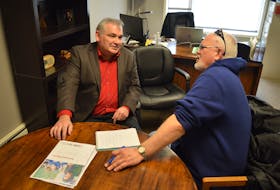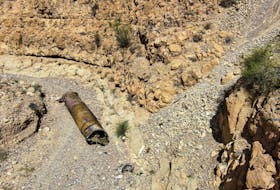When Aman Sedighi first came to Prince Edward Island from Iran, he found himself a bit lost.
He arrived on P.E.I. in 2010 through the Provincial Nominee Program (PNP).
At that time, the PNP was different. Immigrant nominees had to invest in a local business to get their permanent residency, but they had no active involvement.
Sedighi, whose background was in agriculture, was matched with a law firm for his PNP nomination. The owners who received his investment never reached out to him, and he says when he introduced himself one day at a public business event, they didn’t know who he was.
“It took me 17 to 18 months to find another business,” he said, speaking through an interpreter.
“Why should have I wasted 17 to 18 months?”
He has since established a successful 15-acre organic farm in Brookfield called A-OK Gardens. He grows garlic and is now experimenting with mint extract. He says he wishes he had been better matched with a business that fit his skill set when he first came to P.E.I.
“Had I started from the day that I arrived here, where I have gone from point A to B, I could have been maybe at point C with the plans that I have and funds that I had in the beginning.”
The PNP has since been revamped, and passive investments in Island companies are no longer permitted.
Government acknowledges further improvements are needed, notably to retain more new Canadians, many of whom arrive here but do not stay.
At a glance
Here are the 12 intermediary firms approved by the P.E.I. government. Firms with a star were previously approved intermediaries under the P.E.I. PNP:
- Sunrise Immigration and Investment (7817436 Canada Inc.)
- New Island Opportunities Inc.
- KC Immigration Services Inc.
- Confederation Capital P.E.I. Ltd.
- Can-nection Immigrant Business Investment Ltd.
- Bether Capital P.E.I. Inc.
- Abegweit Immigration (10347345 Canada Inc.)
- Aim 4 Inc.
- Cox & Palmer
- Launching Point Immigration Services Inc.
- Mazu Consortium Ltd.
- Western Immigration Opportunities Inc.
In an effort to find immigrant nominees that best match P.E.I.’s business and labour needs, the province issued a request for proposals (RFP) for new PNP ‘intermediaries,’ also known as agents, whose job it is to identify and attract potential immigrants to P.E.I. and help them with the paperwork involved in the complicated application process. For this work, intermediaries receive a fee paid by the applicants.
On Friday, government announced the 12 successful applicants. Previously there were seven approved intermediary firms. Six of the seven have been re-approved, and the remaining six are new to the PNP.
Economic Development Minister Heath MacDonald says a key factor in these firms being approved was their presence in rural areas of the province.
That’s because they have been tasked with attracting more immigrants to live, work and do business outside of urban centres.
“One of the things we’re trying to do is more immigration to rural P.E.I., and we felt that it’s time to shake things up a little bit in the way we do things,” MacDonald said.
Government will be “putting pressure” on these intermediaries to ensure they are recruiting individuals and families who truly understand the P.E.I. lifestyle and who want to work in areas where there are demographic and labour needs, MacDonald said.
“We’re not going let the intermediaries to just continue to do things the way they’ve done in the past,” he said.
“When we’re doing the evaluation of the files that come through from the intermediaries, we’re going to take a look at these, we’re going to present them with a criteria that says… if we’re taking many immigrants from Asia, perhaps we look at India, perhaps we look at Mexico, perhaps we look at the Philippines. Let’s really diversify the file.”
The province is also partnering with rural municipalities to allow them to voice their desire to welcome newcomers to their communities.
Blake Doyle, owner of one of the 12 intermediary firms, says the changes will mean intermediaries will have to ensure they market and showcase all areas of P.E.I. when recruiting potential nominees.
“When they come to P.E.I. we need to explore some of these rural communities, tour them around the areas, let them meet stakeholders,” Doyle said.
“It’s up to the individual at the end of the day where they reside, but the more we can expose them to what P.E.I. has to offer, the better chance there is of immigration where we can see growth in rural communities.”
Sedighi says the changes appear positive, but he says there must also be more supports for immigrant nominees like him who do settle in rural P.E.I. to help them thrive.
“If government sees potential in people and their businesses and these businesses have plans for growing and they’re working on these plans, the government should directly provide supporting steps,” he said.
“Because if my business grows, I will need more immigrants because I will need workers too.”









